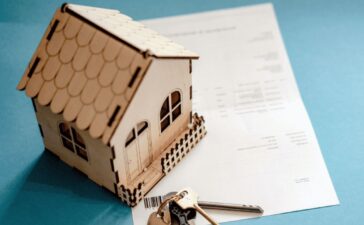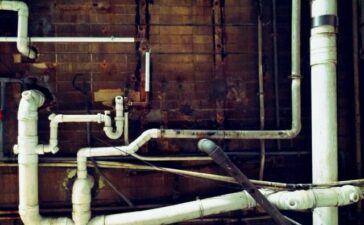Building a house instead of buying is exciting because you can design every aspect of your new home according to your taste and preference. However, without a proper plan, you may not be able to handle the challenges that arise during the building process. An unclear building plan could also lead to investing in costly renovations soon after moving into your new home. If you are thinking about building your dream home, here are nine things to know to ensure the construction process goes as smoothly as possible, and you save money and time.
Do not choose the location based solely on cost
Picking the right location is one of the most critical aspects when building a new home. However, most people prioritize price and overlook other factors when choosing an ideal homesite, which is often detrimental. Not only does choosing the wrong location increase the building costs. You could also compromise your family’s security. For this reason, you should consider infrastructure and access to water and electricity when choosing a place to build your new home.
Take time to research the neighborhood and crime rate of a specific location to guarantee your family’s safety. Invest in an area with essential amenities like schools, hospitals, malls, grocery stores, parks, and churches. Inspect the location’s soil condition to avoid spending time developing and grading the lot.
Hire the right home builder
Unless you intend to build the home yourself, you should strive to find a qualified, trustworthy, and experienced home builder to turn your vision into a reality. The following are crucial elements you should consider when choosing a custom home builder:
- Past work: Consider touring custom homes a potential builder has built or look through their previous project’s gallery to gain insights on their style.
- Credentials: Hire a builder who is licensed, insured and a member of at least one home contractor’s association.
- Personality: You will likely work with your home builder for an extended period, so it is best to work with someone you feel most comfortable with. Look for signs that indicate how it will look like working with a specific builder. Avoid builders who take too long to reply to messages or emails as they may be unreliable.
- References: Speak to a potential contractor’s previous clients to gain helpful insights about working with the builder and the quality of their work. You could also read reviews and testimonials on the builder’s website or Google reviews. Ensure you also check the Better Business Bureau or your state’s Department of Consumer Affairs to determine whether there are any complaints against a potential builder before hiring.
- Price: Get bids from numerous home builders and compare pricing to settle for a reliable, experienced builder with affordable rates. However, ensure you read the fine prints and determine what is and is not included in the builder’s costs to avoid surprise expenses in the middle of the building process.
Always work with a budget
Building a home is one of the most expensive undertakings, so you should ensure you can afford it before the construction. An effective way to achieve this is by creating a reasonable budget for finishing, furnishing, and building your home beforehand. This will keep you from realizing that you cannot afford a new construction project halfway through the process. A budget also informs your choices, including the suitable materials to use. It also keeps you from overspending.
To create a reasonable budget, research how much different elements for your new home will cost, including the land, the builders and designers, building materials, interior features, and appliances. You should also account for other building-related expenses, including the closing costs, settlement fees, permits, and stamp duty.
Building a new home could cost more than you have estimated, so you should create a contingency reserve. In the event of unforeseen expenses, you could pull cash from the emergency account instead of allocating additional funds.
Set a realistic timeline
While you may want the construction to take the shortest time possible so that you can move into your new home, it is best to be realistic with your timeline expectations. Be sure to consider the weather when creating an ideal timeline for your project. If you schedule your construction in winter, there will likely be delays due to bad weather.
Secure the relevant permits
Most states require homeowners to secure permits before new construction to ensure the building meets the construction codes and is safe. For this reason, you should liaise with your contractor to obtain the necessary permits.
Failing to secure permits could result in legal implications and fines. The local officials could even authorize that you halt or bring down construction if you do not get permits, which could delay the project and lead to significant losses. If you intend to sell the home in the future, unpermitted construction could also lower the resale value.
Design for the future
Building a home from scratch means you intend to stay in the house for an extended period. For this reason, you should not solely focus on your current needs. If you are a young couple, consider whether you intend to have kids in the future and how many. You should also consider whether you want to age in place.
By considering your future, you will make more informed choices such as the number of bedrooms to include, whether or not to incorporate a series of stairs, and the right decorative finishes and building materials to use. This will keep you from spending more money on renovations to create a space that aligns with your future needs.
Consider the housing market
While you want your new home to complement your style and preferences, you should also consider the possibility of putting up the house for sale. A job transfer, the need to upgrade or downsize, or a medical emergency could necessitate selling, so you should build with potential buyers in mind. To make your home more appealing to prospective buyers, choose neutral paint colors, invest in energy-efficient appliances, and build a functional kitchen.
Endnote
Building a new home can be overwhelming and daunting. However, with the right builder, a realistic timeline, budget, and relevant permits, you ensure the building process runs smoothly.





